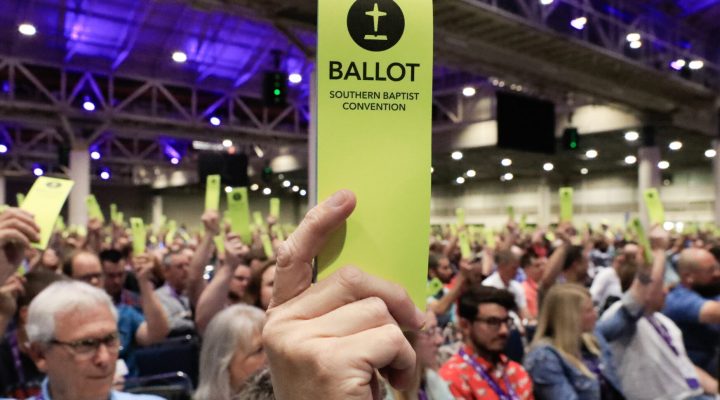Who’s actually responsible for the positions and actions taken by entities of the Southern Baptist Convention?
This is a pressing question now, as controversy flares over the SBC and three of its entities signing an amicus brief in a Kentucky Supreme Court case, taking a position against a sexual abuse survivor who was, herself, a member of a Southern Baptist church and whose youth pastor allegedly did not report her abuse.
Abuse survivors and advocates were outraged to learn the SBC, the SBC Executive Committee, Lifeway Christian Resources and Southern Baptist Theological Seminary all signed the friend of the court brief against abuse victim Samantha Killary. Their brief urges the state Supreme Court not to allow a retroactive expansion of the statute of limitations for filing sexual abuse claims and not to allow third parties to be held liable for knowing about abuse but not acting.
Trustee officers of the Executive Committee have said not a single trustee was aware the Executive Committee had signed the brief.
Trustee officers of the Executive Committee have said not a single trustee was aware the Executive Committee had signed the brief — an act apparently done unilaterally by former Interim President Willie McLarin at the urging of legal counsel.
SBC President Bart Barber, who signed off on the convention as a whole participating in the brief, now says he did not understand the scope of the situation and regrets his decision.
No information has been provided about what was known by trustees of Lifeway or Southern Seminary.
Lifeway officials have made no comment about the matter, while Southern Seminary President Al Mohler offered a brief statement saying he signed the brief on the advice of legal counsel.
In SBC polity, it is elected trustees who are accountable for the management of all entities. Staff leaders, including presidents, work under the supervision of trustees. Yet in the case of the amicus brief, entity leaders appear to have taken a controversial legal stance without the consent of their boards.
In the case of the amicus brief, entity leaders appear to have taken a controversial legal stance without the consent of their boards.
Within recent years, the SBC has required all its entities to amend their charters to declare the SBC as the “sole member” of each corporation. That means in certain situations, the SBC in annual session has the authority to take control of any of its entities and override the decisions of its trustees — who are elected by the SBC in annual session. This was done to prevent institutions from “going rogue” and breaking away from the convention.
One of the key questions in play now is whether any SBC entity head should have the authority to take a position on a controversial legal issue without board consent. In this case, the amicus brief takes an opposite stance than multiple actions and resolutions adopted by messengers to SBC annual meetings — all in support of abuse survivors and accountability.
The answer about authority to sign depends on how much latitude a board of trustees is willing to give its staff leadership.
Rank and file Southern Baptist have the opportunity to make their views known not only to the staff of denominational agencies but to the elected trustees. Yet some of those agencies — like Lifeway and Southern Seminary — do not name their trustees on their own websites.
To find that information, interested parties must keep up with the annual meeting minutes of the SBC or access SBC.net, the denomination’s website. There, a complete listing of entity trustees is provided. This is public information.
Related articles:
SBC abuse survivor advocate says controversial legal brief originated with Lifeway
The duplicity of an SBC amicus brief | Opinion by Christa Brown, David Clohessy and Dave Pittman


